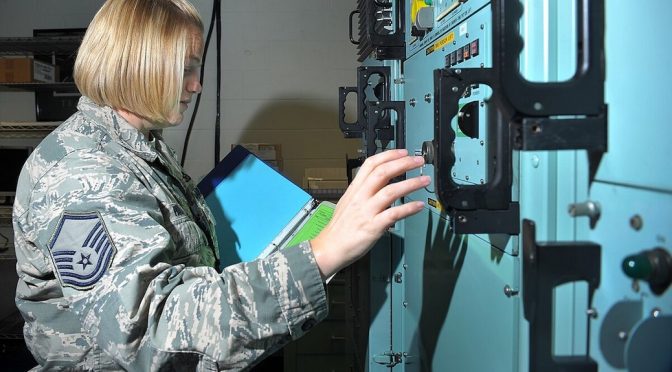Almost 50 years after Congress voted on limiting the President’s power to initiate nuclear war, a half century after an intoxicated Commander in Chief reportedly called for nuclear strikes, and 30 years after the Cold War and its conversation about nuclear command and control ended, today the nation is again discussing nuclear launch authority.
In this article, Dakota Rudesill emphasizes that this interdisciplinary conversation is importantly legal, due in part to claims and assumptions that nuclear weapons are constitutionally special—unconstitutional, reserved only to the President, or usable only if Congress has formally declared war. This article recommends instead that Congress make nuclear weapons statutorily special. That is, Congress should recognize the nightmarish risks associated with unfettered executive power over nuclear launch, acknowledge the importance of good process in decision-making, and write specially tailored rules informed by the covert action statute and other national security frameworks.
This article moves the nuclear command and control conversation forward, analyzing developments over the past 30 years in military planning, international security, Supreme Court doctrine, the national security statutory regime, and originalist scholarship. These developments have strengthened the constitutional case for Congress to craft guardrails to prevent abuse of the Commander-in-Chief power and foster careful inter-agency deliberation regarding any contemplated use of nuclear weapons. To catalyze further discussion and inform legislative action, this article includes the text of a model statute: a Nuclear Forces Control Act.

